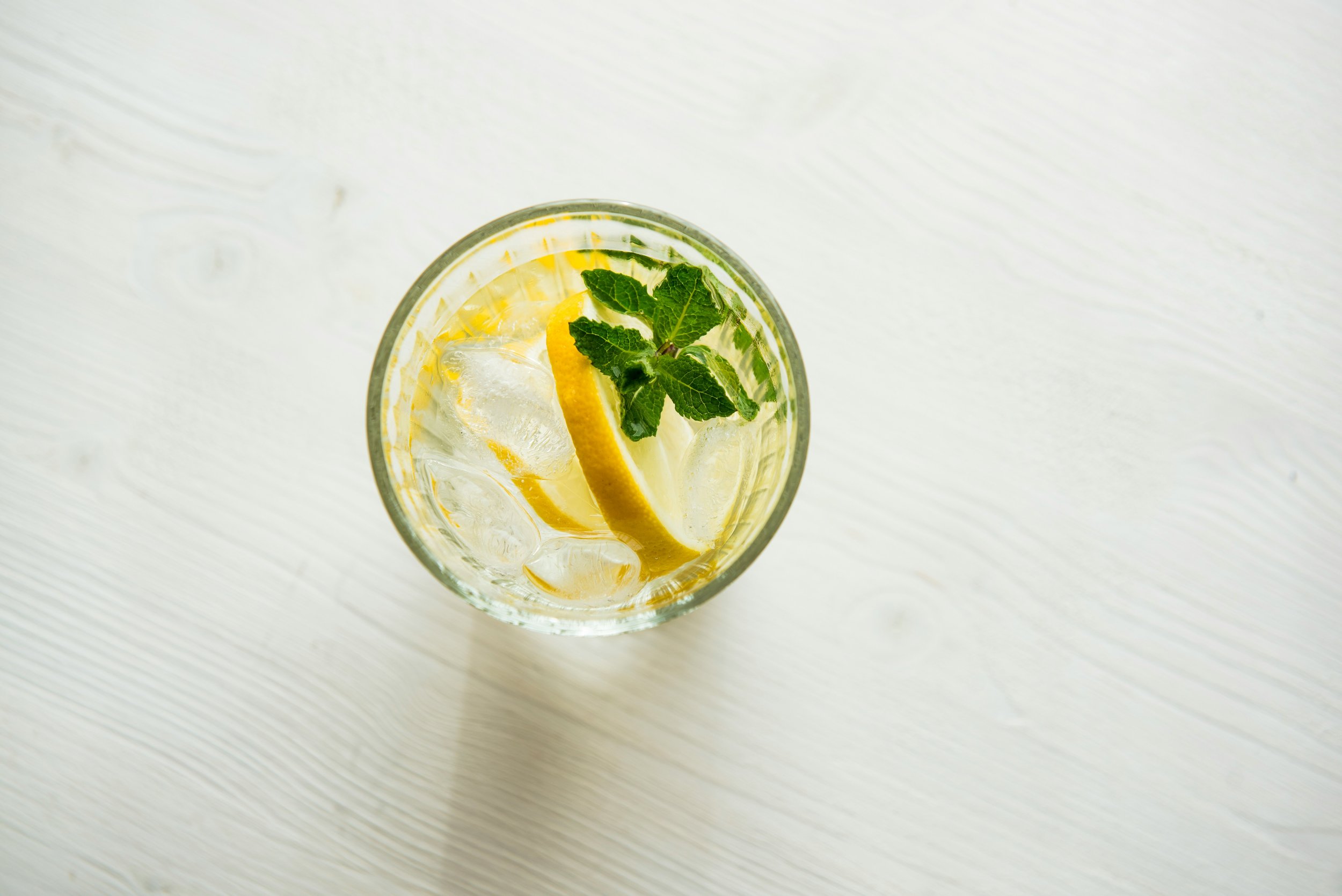Cracking the Hydration Code: Why Water Alone Isn't Enough
This post contains affiliate links, meaning that I may make a small commission when you shop from my provided links. This helps me to grow my business, at no extra cost to you!
Remember when your mom used to nag you about drinking enough water? Turns out, she was onto something – but maybe not the whole story.
As a Nutritional Therapist who's seen more dehydrated clients than I care to count, I'm here to spill the tea (or should I say, water?) on what real hydration looks like.
Spoiler alert: It's not just about chugging eight glasses a day. Now, don't get me wrong. Water is great. It's the superstar of hydration, the MVP of beverages. But here's the kicker – your body is more complex than a houseplant. You can't just water it and call it a day.
So, let’s take a closer look at what it means to truly hydrate. What you're about to learn might just fully change the way you think about quenching your thirst.
Have you or someone you know ever gone to the ER or been in the hospital? One of the questions you’ll likely hear most often is, “are you dehydrated?” And it’s with good reason that they ask this - an estimated 80% of the population is dehydrated! Even I was shocked when I first learned about this. I see so many people lugging around water bottles and talking about their goal of reaching a gallon of water each day, I was surprised that number could be so high.
At its core, hydration is about more than just water intake—it's about how effectively your body can use that water at a cellular level. Research has shown that proper hydration is essential for maintaining blood volume, regulating body temperature, and supporting vital organ functions. But here's the kicker: drinking water alone doesn't guarantee optimal hydration. Enter electrolytes, the unsung heroes of the hydration world.
Electrolytes: The Key to Unlocking True Hydration
Electrolytes are minerals in your blood and other bodily fluids that carry an electric charge. They play a crucial role in maintaining fluid balance, nerve signaling, and muscle function. A study published in the Journal of the International Society of Sports Nutrition found that electrolyte-enhanced hydration (and no, I’m not talking about sugar-filled, artificially colored Gatorade) was more effective than water alone in maintaining fluid balance during prolonged exercise.
The most important electrolytes for hydration include:
1. Sodium
2. Potassium
3. Magnesium
4. Calcium
These minerals work together to help your body absorb and retain water more effectively, ensuring that hydration reaches the cellular level where it's needed most. You might be surprised to see sodium at the top of the list. But remeber when I mentioned the ER asking about dehydration? The IV solution they give you isn’t just plane water, it actually has a saline solution combined with other minerals that will help you hydrate on a cellular level.
Beyond the Bottle: Cellular Hydration Strategies
While drinking water (with electrolytes) is crucial, there are other ways to boost your hydration game:
1. Eat Water-Rich Foods: Fruits and vegetables like cucumbers, watermelon, and leafy greens can contribute significantly to your daily fluid intake. A study in the American Journal of Clinical Nutrition found that increasing fruit and vegetable intake improved hydration status in children.
2. Optimize Your Gut Health: A healthy gut microbiome can enhance nutrient absorption, including water and electrolytes. Research has shown that certain probiotics (when needed) can improve hydration and electrolyte balance. Add that to the long list of reasons why good gut health is so important.
3. Manage Stress: Chronic stress can disrupt your body's fluid balance. Incorporating stress-management techniques like meditation or yoga can support overall hydration status. One of the most helpful things I’ve found in managing stress is breathing exercises like the 4-7-8 (breathe in for 4, hold for 7, release for 8), and box breathing (breathe in for 4, hold for 4, release for 4, hold for 4, repeat).
4. Get Your Antioxidants: Antioxidants play a crucial role in cellular health and hydration. They protect cell membranes from oxidative damage, which can impair cellular water balance. A study in the journal Food Chemistry found that certain antioxidants, particularly flavonoids, can enhance something called aquaporin expression - the proteins that act as water channels in cell membranes. Include a variety of colorful fruits and vegetables in your diet, or consider a high-quality antioxidant supplement to support cellular hydration from the inside out. My favorite supplement for boosting antioxidants is Perfect Supplements Acerola.
Cracking the Hydration Code in Action
So, what does this mean for your daily hydration routine? Here's a simple formula to remember:
Optimal Hydration = Water + Electrolytes + Cellular Support
Start by drinking water throughout the day, but don't stop there. Add a pinch of high-quality sea salt to your water, or consider an electrolyte supplement. A couple of the highest-quality and best electrolyte brands I recommend are BodyBio E-Lyte and Trace Minerals.
Incorporate water-rich and antioxidant-rich foods into your diet, and pay attention to your gut health and stress levels.
Remember, hydration is a dynamic process that requires a holistic approach. By understanding and implementing these strategies, you're not just drinking water—you're nourishing your body at the deepest level.

